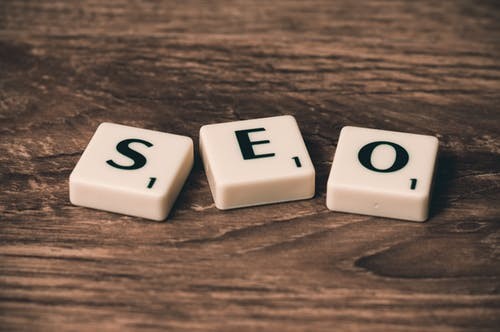Is SEO Still Important in the Modern Digital Marketing World? Advances in technology and the way we connect to each other have changed the way we live and the way companies market their goods and services to us. Today, businesses understand the benefits of using digital marketing and how their success depends on digital media, the internet, and other new technologies. Online marketing gives you the advantage of targeting a specific audience for a much lower cost than traditional marketing. However, running a profitable marketing campaign means knowing which digital tools to use, such as social media, email, PPC, and one of the most important tools, SEO. What is SEO? SEO, which means Search Engine Optimization, is the process of optimizing your site so its easier for search engines like Bing and Google to crawl, find, and categorize. Although SEO is a tool that has been around for a while, there is still no better way to get organic traffic to your site. However, getting your page ranked high in searches is not as easy as it once was. Search engines constantly change their algorithms, which means you’ll need someone who is experienced and understands the latest SEO techniques. As more and more businesses depend on digital marketing to grow their brand and reach their customer base, having an optimized website is more important than ever to remain competitive. Is SEO Still Effective? There was once a time when you could just stack your website’s content with a keyword and that would be enough to boost its rankings. Google has gotten wise to that approach and has since continued to update its search algorithm to reward quality content instead. Now you can get penalized for over-usage of keywords. So why do you need SEO? Because you still need to direct people to your site and content. Keywords are still relevant and it’s the best way to help people find your website, as long as they are used properly. SEO is Still Important in the Modern Digital Marketing World SEO Significance Digital Marketing Impact SEO plays a crucial role in the world of digital marketing, specifically in optimizing websites for search queries. By understanding how SEO impacts digital marketing strategies and search queries, businesses can effectively optimize their online presence. Implementing SEO techniques allows companies to enhance their overall digital marketing performance and achieve better results. With the right SEO strategies in place, businesses can leverage the power of search engines to drive their digital marketing success. Rankings Boost One of the primary goals of SEO is to achieve higher rankings on search engine result pages (SERPs). By optimizing their websites for search engines, businesses can improve their visibility and credibility online. When a website appears higher in search engine rankings, it attracts more organic traffic and gains trust from users. Effective SEO strategies help businesses enhance their website authority and trustworthiness, leading to increased visibility and improved rankings. Visibility Enhancement SEO techniques are essential for enhancing online visibility. By implementing the right SEO practices, businesses can increase brand exposure and reach a wider audience. When a website ranks higher on search engine results, it becomes more visible to potential customers who are actively searching for relevant products or services. Improved visibility through SEO leads to increased organic traffic and greater opportunities for engagement with target audiences. Web Traffic Surge One of the key benefits of effective SEO is its ability to generate a surge in website traffic. By optimizing their websites for search engines, businesses can boost organic traffic significantly. When a website appears prominently in search engine results, it attracts more visitors who are likely to be interested in its offerings. Through targeted keywords and optimized content, businesses can drive more visitors to their site and increase their chances of conversion. SEO Components On-page Strategies To ensure that your website ranks well in search engine results, optimize your website content with relevant keywords. Conduct thorough keyword research to identify the terms and phrases that your target audience is searching for. Then, strategically incorporate these keywords into your website’s content, including in page titles, meta descriptions, headers, and body text. By doing so, you can improve your on-page SEO and increase visibility. Another important aspect of on-page SEO is implementing proper tags and headings. Use descriptive title tags and meta descriptions that accurately reflect the content of each page. Utilize heading tags (H1, H2, etc.) to structure your content in a hierarchical manner. This not only helps search engines understand the organization of your website but also makes it easier for users to navigate through your pages. Furthermore, enhancing website performance can significantly impact your on-page SEO efforts. Optimize images and videos to reduce their file sizes without compromising quality. Compressing files can improve page loading times, which is crucial for user experience and search engine rankings. Make sure that your website is mobile-friendly by implementing responsive design principles. Mobile optimization is increasingly important as more people are accessing the internet through their smartphones. Off-page Techniques While on-page strategies focus on optimizing elements within your own website, off-page techniques involve building authority and credibility outside of your site. One effective off-page SEO method is building backlinks on reputable sites. When other websites link to yours, it signals to search engines that your site is trustworthy and valuable. Seek opportunities to guest post or collaborate with influencers in your industry to acquire high-quality backlinks. Another way to boost off-page SEO is by promoting your content on various platforms. Share blog posts, articles, videos, or infographics across social media channels to increase visibility and attract more visitors to your website. Engage with your audience by responding to comments and encouraging social sharing. This not only helps with off-page SEO but also strengthens your brand’s online presence. Furthermore, engaging with online communities can have a positive impact on your off-page SEO efforts. Participate in industry-related forums, discussion boards, and Q&A platforms where you can provide valuable insights and establish yourself as an










